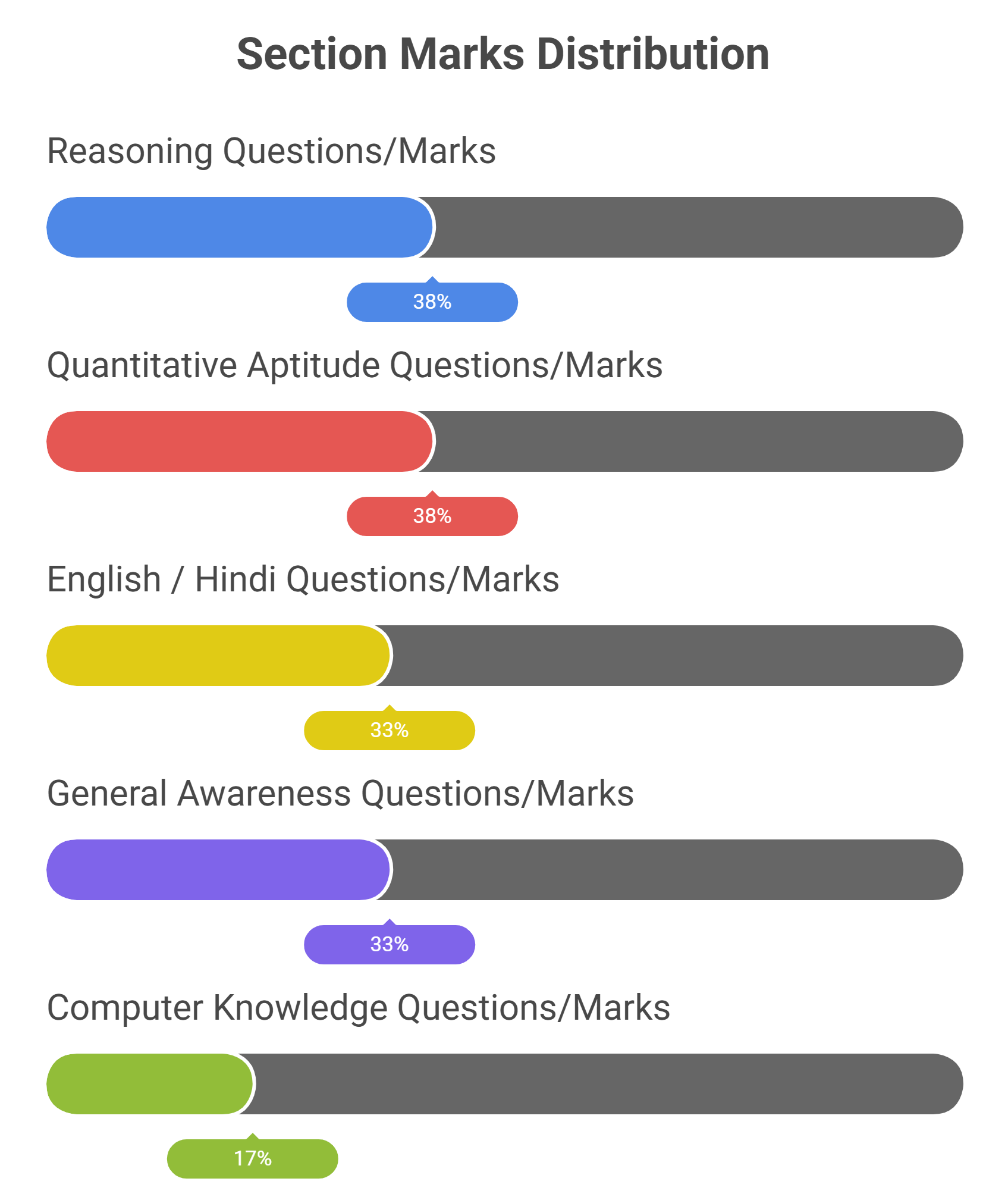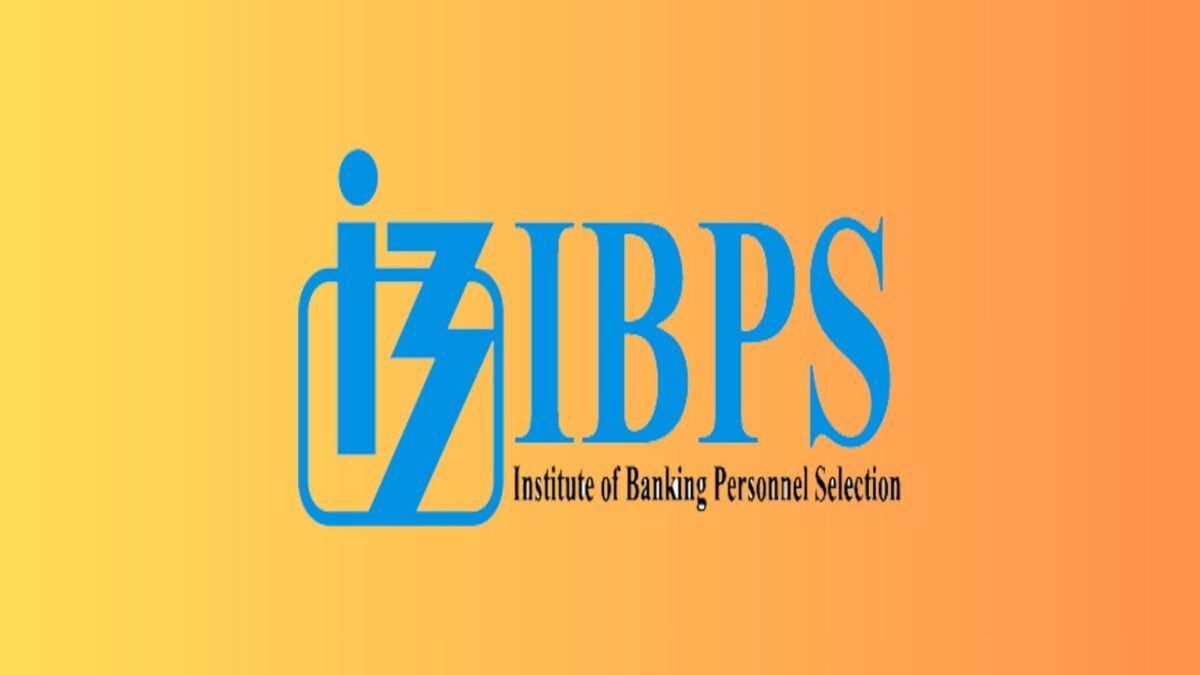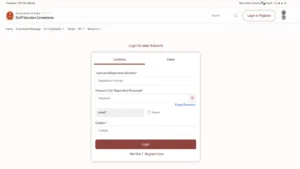You need the right strategy to clear the IBPS RRB PO Exam 2025. One of the most effective strategies is to target important topics for IBPS RRB PO 2025 by understanding their weightage. Knowing which topics have a higher weightage helps you streamline your preparation, minimize waste of effort, and keep your time management to a point. In this article, we break down the important topics for IBPS RRB PO 2025, spotlight high-weightage topics, and suggest how to plan your study accordingly.
Important Topics For IBPS RRB PO 2025 Exam: Overview
Let’s first revisit the exam pattern and structure to understand where these topics fit. In Prelims, the focus is only on Reasoning Ability and Quantitative Aptitude. In Mains, additional sections like General Awareness, Computer Knowledge, and Language (English/Hindi) are also included. Understanding Important Topics for IBPS RRB PO 2025 involves analyzing the trend of each section over the years and identifying the topics that are asked repeatedly.
| Stage | Sections Included | Total Marks | Time Allotted |
|---|---|---|---|
| Prelims | Reasoning + Quantitative Aptitude | 80 | 45 minutes |
| Mains | Reasoning, Quant, English/Hindi Language, General Awareness, Computer Knowledge | 200 | 120 minutes |
Click Here: IBPS RRB Notification 2025
Important Topics For IBPS RRB PO 2025
Below is a breakdown of important topics for IBPS RRB PO 2025, and their approximate weightage or frequency in past exams.
Reasoning Ability
Reasoning is a core section and includes many subtopics. The following table shows how many questions each subtopic has typically contributed. Puzzles & Seating Arrangement remain the major components for scoring high in the Reasoning section.
| Topic | Approx. Questions/Weightage |
|---|---|
| Puzzles & Seating Arrangement | 20–25 |
| Inequality | 3–5 |
| Coding-Decoding | 4–5 |
| Direction & Distance / Sense | 2–4 |
| Blood Relation | 2–4 |
| Syllogism | 2–3 |
| Alphabet / Number Series | 1–3 |
| Miscellaneous / Others (Order & Ranking, etc.) | 3–4 |
Quantitative Aptitude
The Quantitative section has several key topics. Based on past trends, here’s a rough breakdown for the Prelims stage. Also, for the Mains, Data Interpretation/Caselet questions become more substantial, and Arithmetic-based problems become more complex.
| Topic | Approx. Questions/Weightage |
|---|---|
| Arithmetic / Word Problems | 12–17 |
| Data Interpretation | 10–15 |
| Number Series | 5–6 |
| Approximation / Simplification | 5 |
| Quadratic Equations | 0–6 |
| Data Sufficiency | 0–3 |
| Quantity Comparison (Q1 & Q2 based) | 0–3 |
English / Hindi Language
The following are the usual topics you must focus on for the language section of the IBPS RRB PO exam 2025:
- Reading Comprehension (often 8–12 questions)
- Cloze Test/Fill in the Blanks
- Error Spotting/Sentence Correction
- Para Jumbles/Sentence Rearrangement
- Vocabulary/Synonyms & Antonyms
- Match the Column
General Awareness
Because GA is unpredictable, consistency is key; It is a must to develop a weekly reading habit of current affairs and banking news for a good score in the GA section of the exam.
- Current Affairs (last 6–12 months)
- Banking & Financial Awareness
- Static GK (Geography, Economy, Polity, etc.)
Computer Knowledge
Though generally considered easier in level, it cannot be ignored. Here are some important topics you need to cover for the Computer section of the exam:
- Basics of Computer Hardware & Software
- Networking, Internet Concepts
- MS Office (Word, Excel)
- Shortcut Keys, Operating System, Security, Virus
- Database fundamentals, Input/Output devices
- Computer Terminology & Abbreviations

Preparation Strategy for IBPS RRB PO 2025
Based on the above insights, the weightage of all the important topics for IBPS RRB PO 2025, you need to prepare your own strategy to get ahead of the competition. Follow these tips to maximise your preparation:
- Start by mastering Puzzles/Seating, Arithmetic, and Data Interpretation. These are the most scoring topics if you have sufficient practice, and your concepts are clear.
- Don’t neglect small topics (like Syllogism, Coding-Decoding, Inequality). Aim to be correct in the easier ones rather than being risky with attempting all difficult sets.
- Allocate practice slots focusing only on one section at a time (say 30 min puzzles, 30 min arithmetic, etc.)
- After finishing a topic, test immediately via quizzes. Then do full-length mocks weekly to monitor balance across topics.
- Maintain short notes or flashcards for formulas, shortcuts, trick methods, and difficult patterns. These help in last-minute revision.
- For General Awareness and Computer Knowledge, regular daily reading suffices rather than heavy sessions.



 SSC MTS Admit Card 2026 OUT for Re-Exam,...
SSC MTS Admit Card 2026 OUT for Re-Exam,...
 UPSSSC Pharmacist Recruitment 2026 Out f...
UPSSSC Pharmacist Recruitment 2026 Out f...
 Rajasthan Home Guard Physical Test Dates...
Rajasthan Home Guard Physical Test Dates...


 Adda247 Job portal has complete information about all Sarkari Jobs and Naukri Alerts, its latest recruitment notifications, from all state and national level jobs and their updates.
Adda247 Job portal has complete information about all Sarkari Jobs and Naukri Alerts, its latest recruitment notifications, from all state and national level jobs and their updates.




